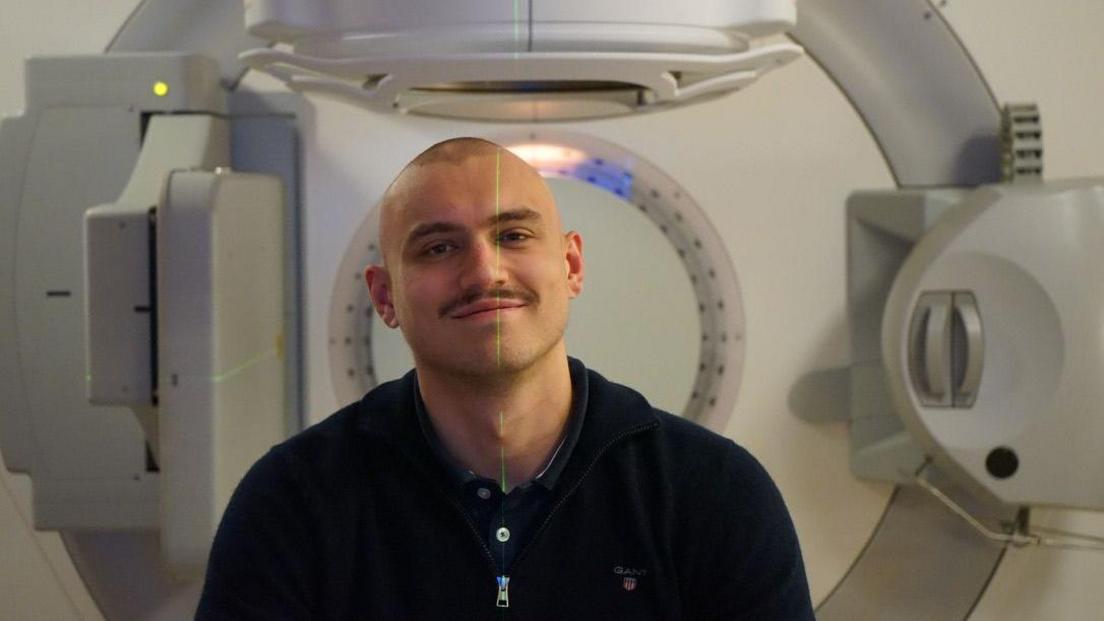Centre marks 40 years of gamma knife surgery
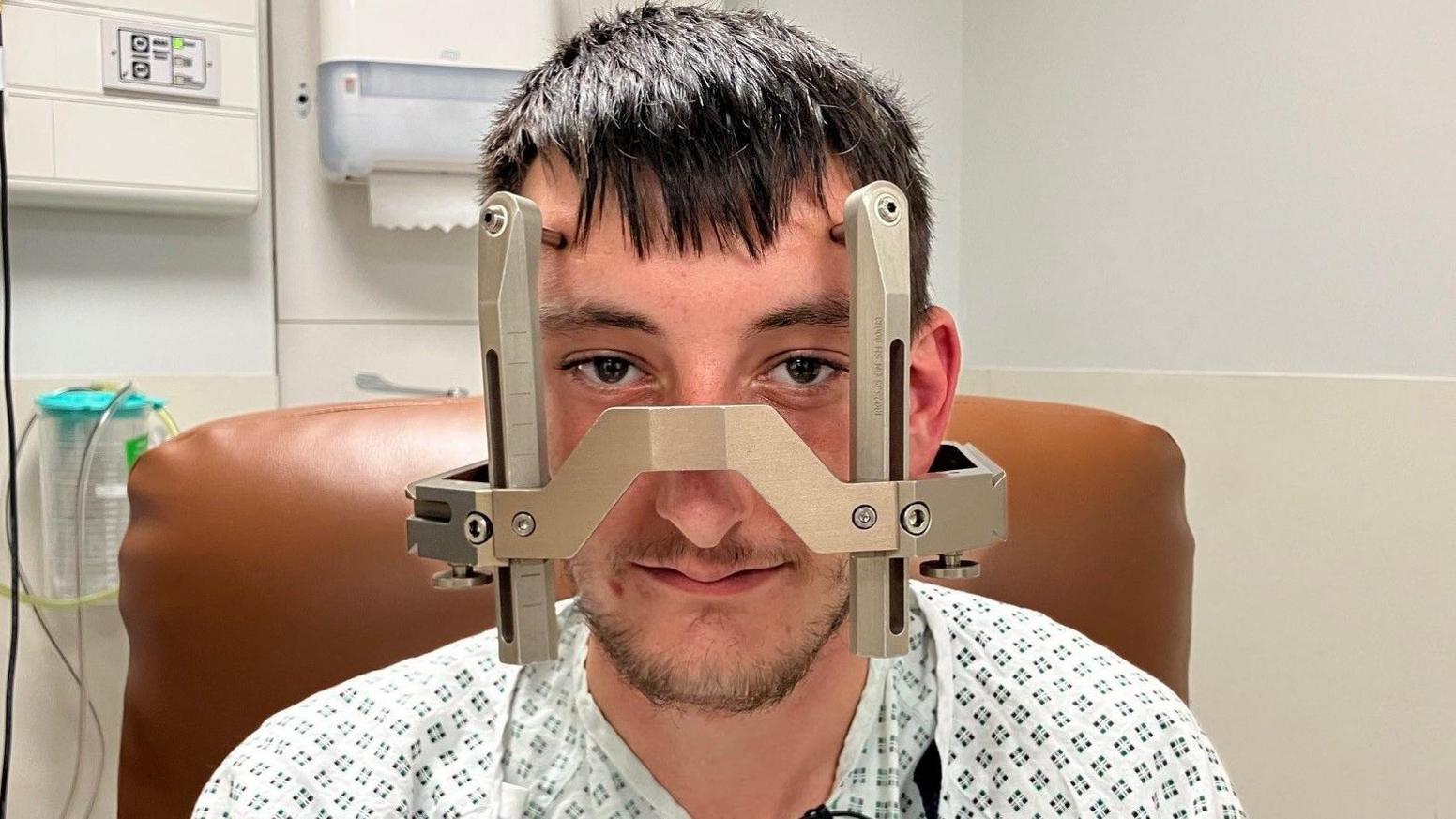
Patients like Ethan Berrington wear a frame to guide the targeted treatment
- Published
A hospital trust is marking 40 years since it became the first in the UK to use gamma knife surgery to treat patients with brain tumours.
The National Centre for Stereotactic Radiosurgery, at the Royal Hallamshire Hospital in Sheffield, was just the third centre in the world to use the non-invasive treatment back in 1985.
Gamma knife surgery uses radiation - rather than a knife - to target the most challenging brain tumours, lesions and brain conditions, while protecting healthy brain tissue.
Sheffield Teaching Hospitals NHS Foundation Trust said since the unit launched it had treated 21,011 patients and delivered 24,860 treatments.
In 2023 the centre became the first in the world to begin using the newest next-generation gamma knife technology - the Elekta Esprit.
The trust said it uses 192 focused beams to deliver treatments with pinpoint accuracy, while protecting healthy brain tissue.
Most patients are able to have gamma knife treatment as a day case procedure and can return to normal activities the next day.
Conditions which can be treated in this non-invasive way include malignant and non-malignant tumours, brain metastases, and non-cancerous conditions like arteriovenous malformation (AVM) which can lead to stroke, facial pain and essential tremor.
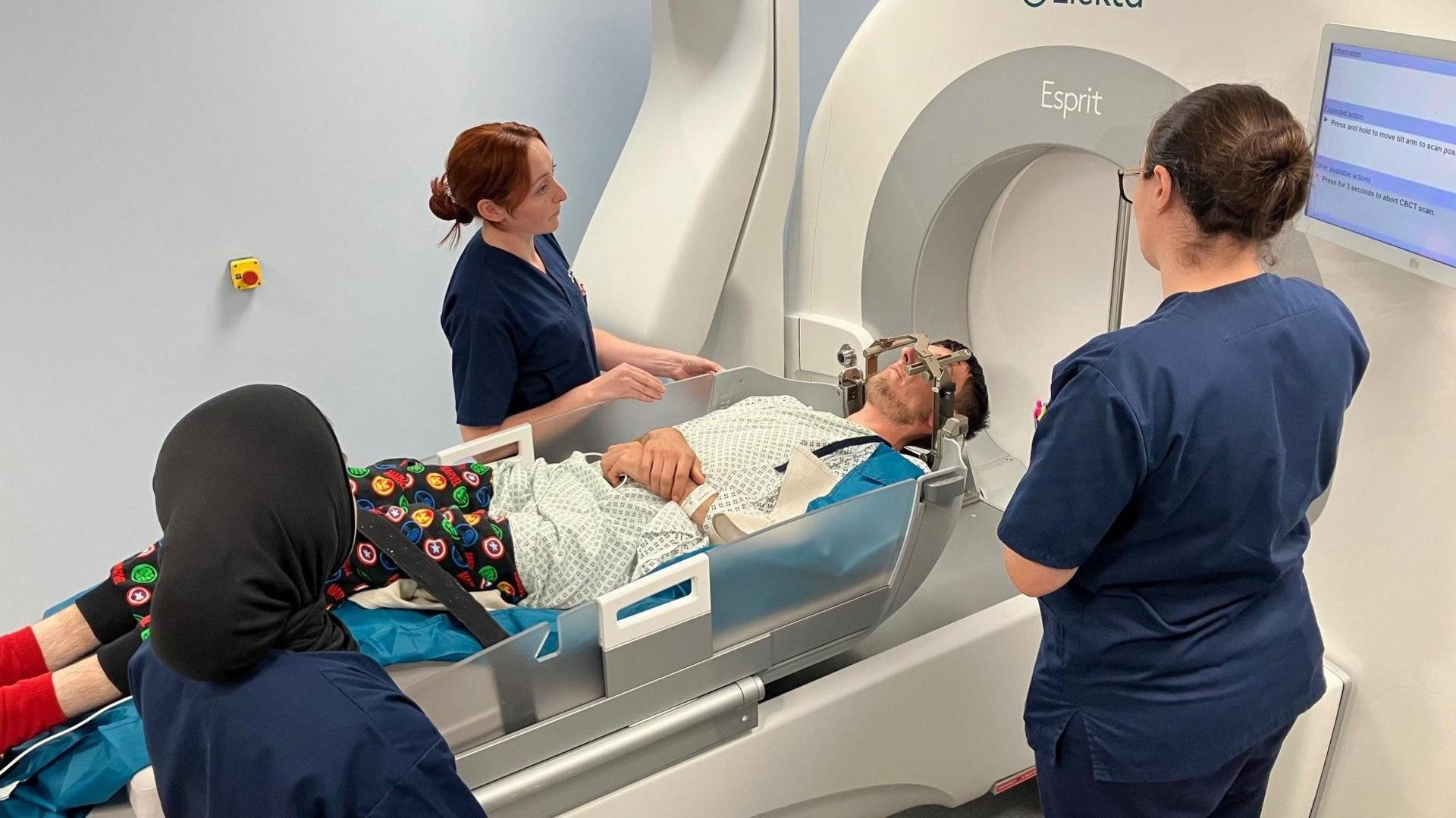
Sheffield was the first place in the UK to offer gamma knife surgery
Ethan Berrington, 23, recently underwent treatment at the centre for an AVM after suffering a stroke in October 2024 which left him in hospital for 23 days.
"I was born with an extra blood vessel in my brain and it just burst, it could have happened at any time," he said.
"That then caused me to have a stroke, which then caused an aneurysm.
"When they [doctors] tried to operate on the aneurysm it caused me to have seizures."
He said when he was admitted to the Royal Hallamshire, he was told if he did not have the gamma knife surgery then there would be a 90-100% chance he would have another stroke in the next 10 years.
Mr Berrington said: "It has been hard, not just on me but on everyone, family and friends - but I'm in the right place."
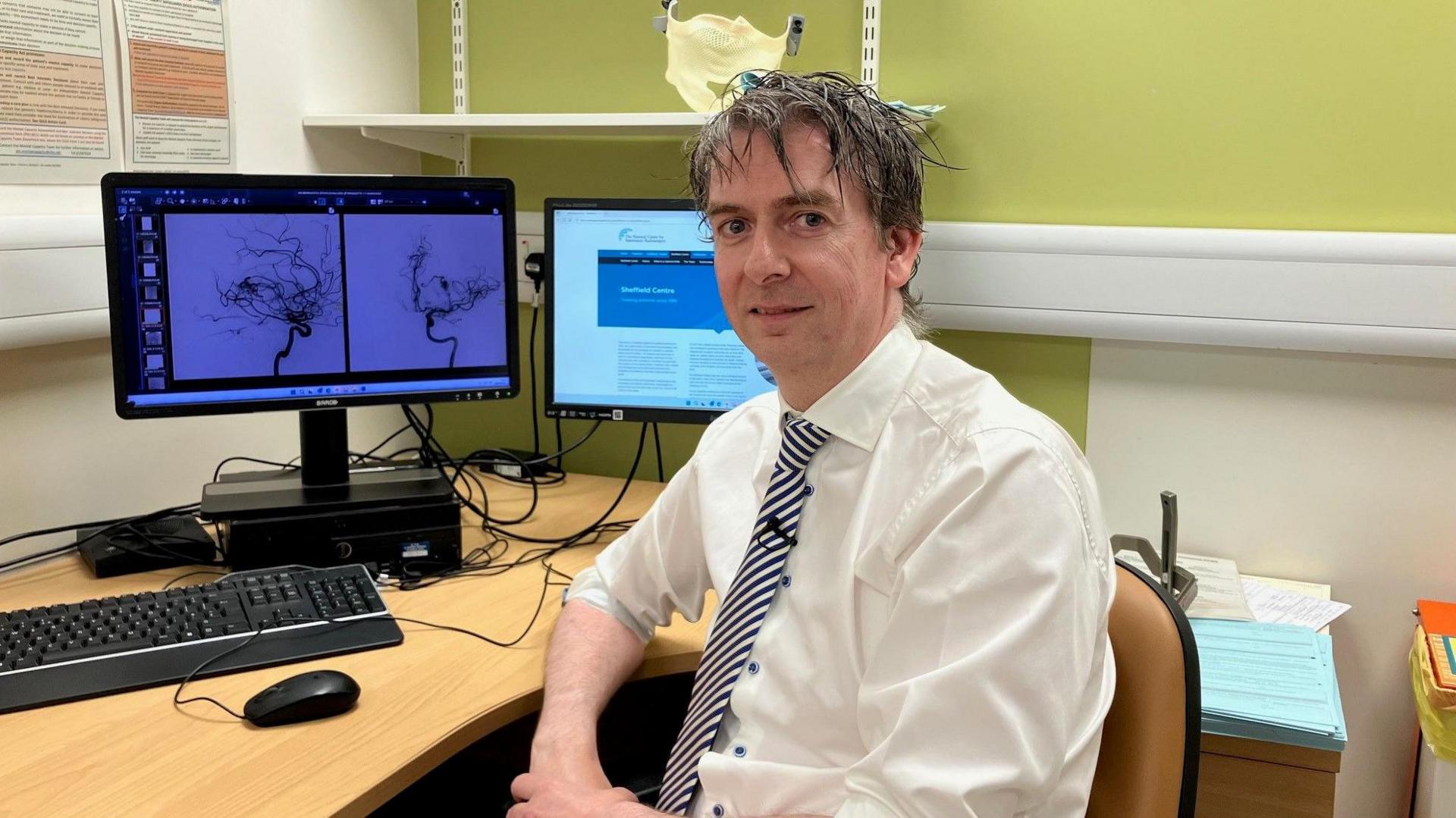
Julian Cahill says 40 years is a "phenomenal milestone" for the hospital
Julian Cahill, clinical lead for gamma knife surgery in Sheffield, said Mr Berrington's treatment was designed to cause the blood vessels to close over a period of two to four years.
After this time, Mr Berrington will return to the unit for more tests - and in 85% of cases, doctors will see that the abnormality has gone. If not, Mr Cahill said more treatment can be given.
"Once it closes off he no longer has a risk of having a haemorrhage, so it is effectively a cure," he said.
He said marking 40 years of gamma knife surgery in Sheffield was a "phenomenal milestone".
He said: "The first treatment was on 18 September 1985, in which we treated an AVM as well, and that patient was cured two years later.
"The gamma knife was brought to the UK through a research grant and we have been using it for the last 40 years.
"We are one of the oldest units in the world - now with the highest number of patients.
"It has been a phenomenal change to how we see patients being treated not only for AVMs but also for tumours, whether they are benign or malignant."
Get in touch
Tell us which stories we should cover in Yorkshire
Listen to highlights from South Yorkshire on BBC Sounds, catch up with the latest episode of Look North
Related topics
- Published6 March
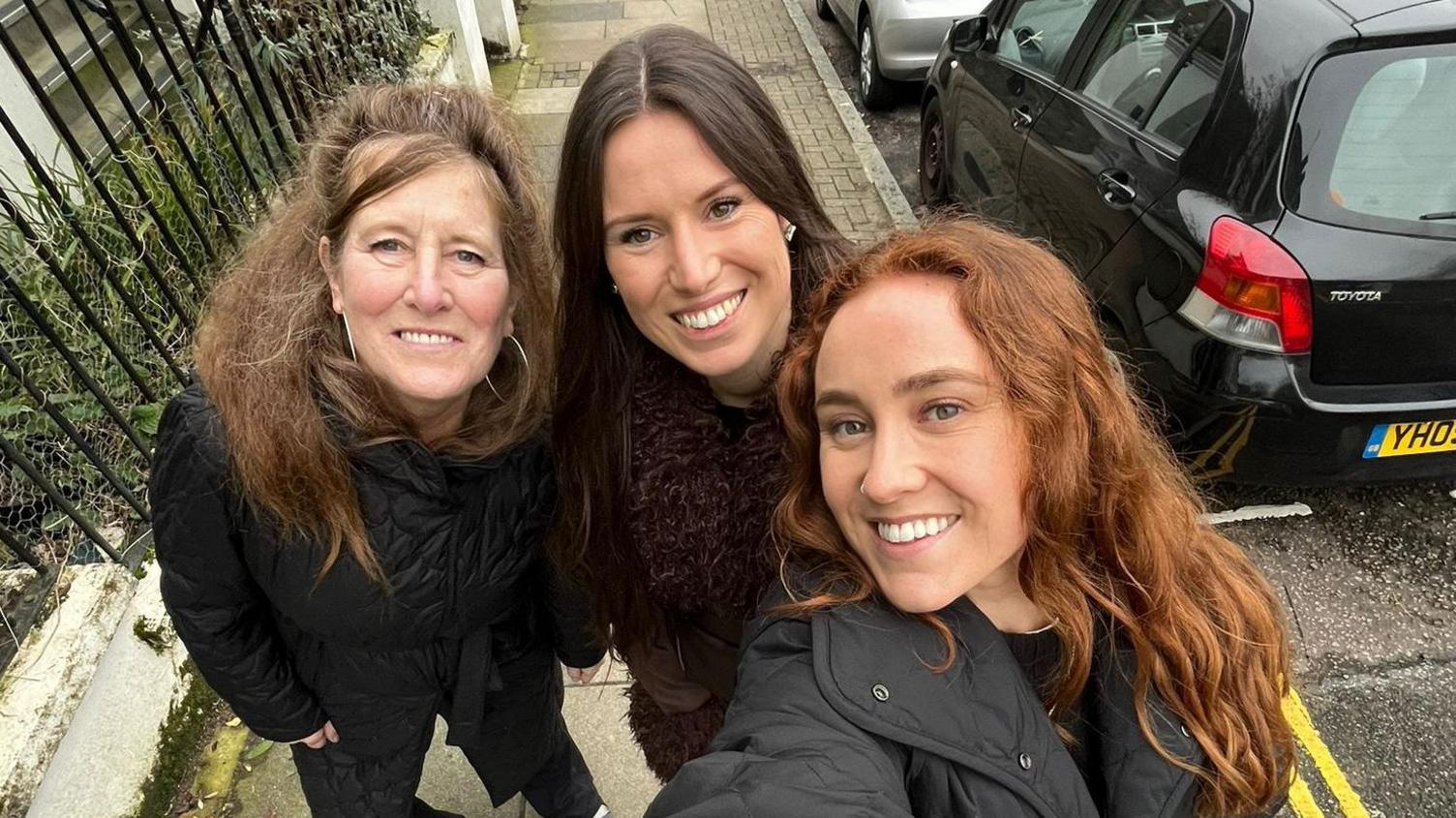
- Published7 February
